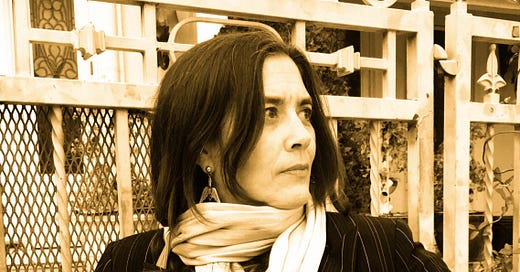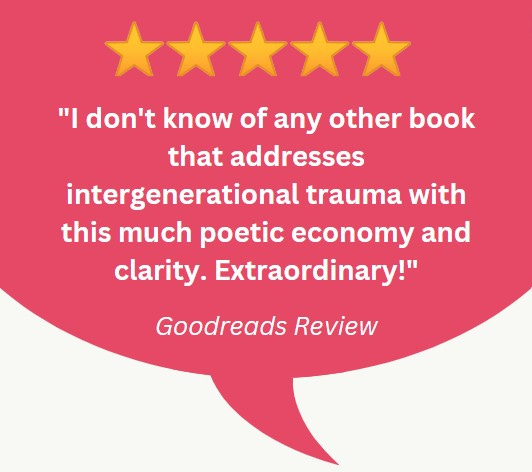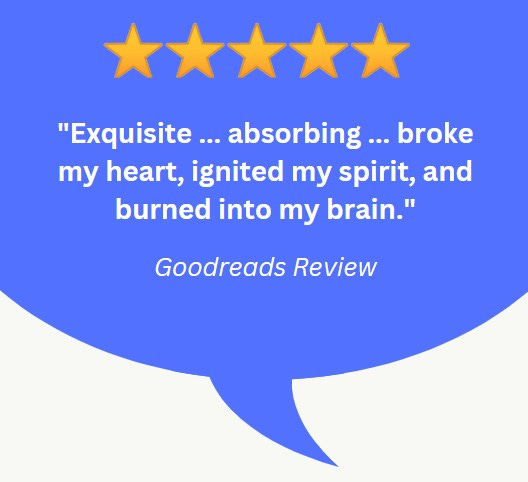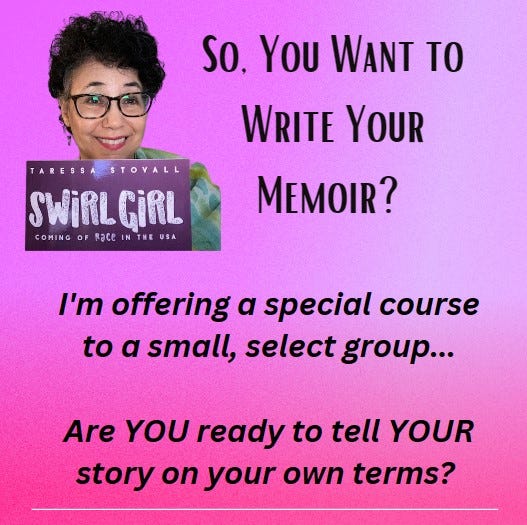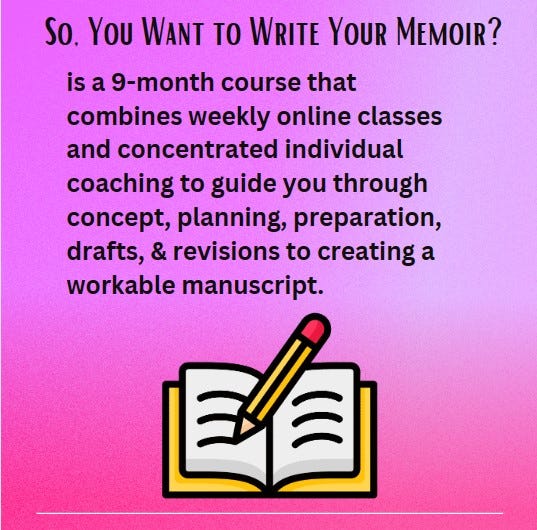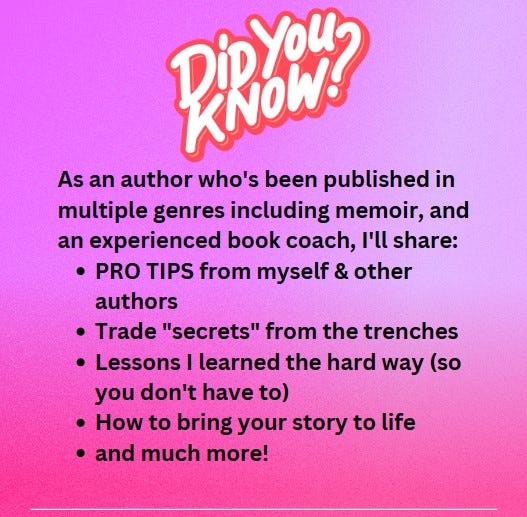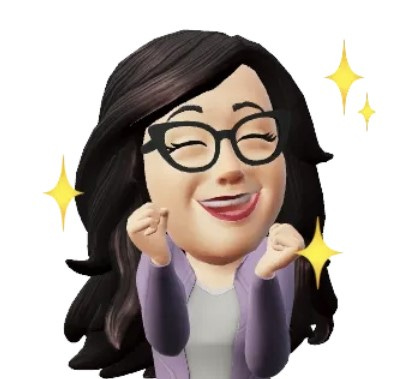Alison Hart: 'Fiction is the Best Way for Me to Tell the Truth'
And her truths are something you DO NOT want to miss!
Author Alison Hart: “People can deal with their own confusion about my ambiguous appearance, or they can read my books.”
You already know I’m ALL about us telling our stories. While I’m delighted that Mixed memoirs are on the rise—and have featured some right here—I’m excited to spotlight dynamic and illuminating fiction that explores and expresses the rich drama of Mixed lives from a Mixed perspective.
Meet Alison Hart, who weaves words to stitch together the stories of her Ancestors, fill gaps in knowledge, explore vistas of possibility, and illuminate her Mixed heritage. Her work centers on her Black and Indigenous Ancestors from New England, intergenerational trauma and healing, Mixed-race identity, and uncovering the brutal truth of American history.
Alison, who identifies as a Mixed-race Passamaquoddy Native American, Irish, Black, Scottish, and English woman of color, released her debut novel, Mostly White, in 2018. Imagine her excitement when her literary idol, National Book Award-winning author Isabel Allende, praised the book as, “So compelling it gave me goosebumps from the very first lines.”
Spanning four generations of an African American, Irish, and Native American Mixed-race family, Mostly White is a powerful tale of intergenerational trauma and healing brought by music, nature, and the resilience of women. From Emma, who survives the abuse of an Indian residential school in 1890s Maine, to Ella, who navigates color lines in 1980s New York City, Alison’s unforgettable characters fight to form their own identities and honor the call of their Ancestors.
We’ll get to more about Alison’s latest work in a minute, but first I invite you to enjoy our recent conversation about all the things…
Q: How did researching and writing your debut novel, Mostly White, book impact your own identity journey?
A: I had no story to connect with about my mother’s family. I was in constant search for myself in movies, books, history, to identify with someone I resembled, someone who was Mixed like me. Creating a narrative using research, oral history and my own imagination helped fill the gaping hole inside me. Writing Mostly White gave me ground to stand on, to define myself and not accept other’s projections about my identity.
Q: What kind of responses are you getting from folks about Mostly White? Are they the kind of responses you expected while writing the novel, or are they different?
A: I had no idea how Mostly White was going to be received. I lost all perspective on it; I was too close to it. Most readers tell me they were deeply moved by the novel, some couldn’t bear reading it. One of the greatest gifts for me was when my idol Isabel Allende praised my novel, which I never expected would happen. Also, I shared Mostly White at Print Bookstore in Portland, Maine and many family members showed up, some I met for the first time at the reading. It turned into an unforgettable bookstore family reunion.
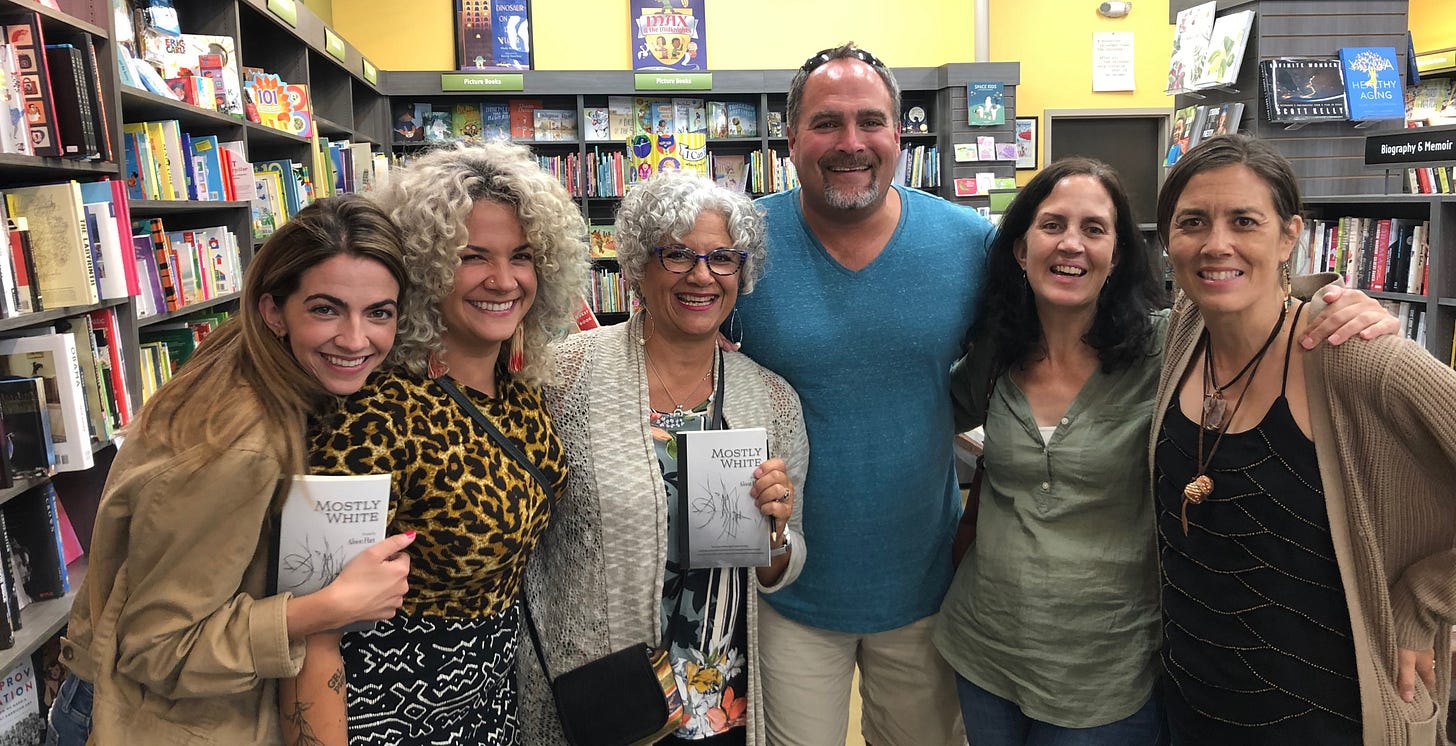
Q: The description on your “Hot Flashes” blog says, “I write to restore the voices of my African and Native American New England ancestors, to heal intergenerational trauma, and to celebrate resilience.”
Can you please share how and when you came to this work? Or did it come to you?
A: My mother’s family was a mystery growing up. She always told us “Be proud of your Passamaquoddy, Black and Irish ancestry.” That was it. We never visited her family; her Black father rarely came to visit, and I only remember seeing him at his funeral when I was ten years old. I grew up in a suburban town in Massachusetts, my father a white southerner from Arkansas and my mom from Maine. Context is important, they married prior to Loving vs. Virginia 1967, when interracial marriage was illegal in many states. My parents chose to raise us in the town we grew up in because the Unitarian church welcomed us.
My mother had an extremely horrific childhood: poverty, abuse and alcoholism. She rarely spoke of it, she survived it, fled, and excelled in academia and was a poet, nurse, and scholar. Essentially, she was cut off from her family, so we were cut off too. There was no language for who we were: Mixed-race children in an all-white town. And though we were told to be proud of all our heritages, my older siblings were called the N word, beaten up, and spit on. It wasn’t safe to be who we were.
We had no understanding of our history in New England. In school, history was completely centered on white colonial settler life, barely mentioning Native Americans or African Americans. In the late 1980’s my mother and older sister Lisa, started to research our family roots. This was the beginning of what has become a life-long journey of delving into the history of our ancestors.
My mother passed into spirit land at the early age of seventy- four in 2010, and Lisa and I have continued to research throughout the writing of my first novel Mostly White. I suppose I was born into this work to heal my own wounds, tell my family’s story, shine light on my ancestors whose existence was hidden, and share it with the world.
Currently scholars are researching our family as there is a surge of interest in the contributions of Black and Native Americans in New England. Many have generously shared their findings about our ancestors, the Freeman’s, and that has inspired me to continue writing.

Q: While moving through the world, how often and in what situations are you asked, required, or pressured to describe / define your identity to others? What are some of the most common ways that folks respond—and how do you respond to them?
A: It is random, when I least expect someone will ask the most annoying question no one should ever ask a Mixed-race person: “Where are you from?” The assumption is that because I am brownish, I am not American, yet my family has deep roots in this country, thousands of years. I often say, “I’m American,” and leave it at that. They can deal with their own confusion about my ambiguous appearance, or they can read my books.
Q: Amid the rise in Mixed memoirs, you’re writing fiction about these themes and topics. Why did you make that choice?
A: Fiction is the best way for me to tell the truth. I am a bit of a drama queen and like to embellish narratives to create tension, character’s arch, and dip into surrealistic worlds. I see my life as one long novel that I haven’t finished writing yet.
Q: What are the challenges of writing fiction rooted in your ancestry? And what are the rewards?
A: My major challenge is not to get lost in the rabbit hole of research while searching for historical context for a character. I could spend the rest of my life researching and at some point, I need to stop, trust myself, and write. The rewards are digging out research gems. For instance, while writing my second novel, I found a memoir of a soldier who fought in the First Bull Run Battle in Spotsylvania during the Civil War, the same battle my Black ancestor George Augustus Freeman fought and was wounded in. In addition, finding George’s “X” signature on his enlistment form was thrilling to see.
Most recently, my sister Lisa and I (along with the help of historian Gordon Harris, and scholar James Tanzer), discovered that our ancestor John Freeman (George Freeman’s grandfather) was enslaved in Ipswich, Massachusetts, fought in the American Revolutionary War, and shortly thereafter moved with his family to East Brunswick, Maine starting the Freeman family line. This September, Essex County will present a plaque for John Freeman to honor Black soldiers of the Revolutionary War, near where his family was enslaved. This will be an incredible moment for our family to come together to celebrate and acknowledge our ancestors, making Black New England history visible for all.
Alison Hart: “American history is real. It is brutal, genocidal, worse than any horror film.”
Q: Can you please share how you connect and commune with your Ancestors, and what learning about them has taught you about yourself?
A: Ancestors come to me in dreams and that informs my writing. The premise of my second novel The In Between Sky is centered around a dream I had about my ancestor Eliza who was born in Richmond, Virginia in 1841. I used the dream as a prologue in the novel.
An excerpt from The In Between Sky:
A dark blue bonnet with white lace trim frames the young woman’s ebony face and high cheekbones. She sits on the edge of a bed with shiny brass bedposts. Across the room from her, the wind gently blows white curtains through a half-open window.
She says nothing except with her eyes. She pleads to me as tears stream down her face. A man stands nearby, wearing a brown, worn leather hat and tan work boots, holding a fiddle. He turns his head away from me. She reaches her thin hand across the bed; I take it and know I must tell their story.
(Excerpt from THE IN-BETWEEN SKY Copyright © 2022 Alison Hart)
I will never know exactly what my ancestors endured for me to exist now, but history can teach us what our ancestors survived, what choices they had, and that gives me a sense of humility and gratitude for the life I am living today.
Q: What do you want the world to know about you and the characters and histories in your books?
A: The history is real. It is brutal, it is genocidal, it is worse than any horror film, this is American history. The sooner we accept that, the better we have a chance of moving on in a more authentic and integrated way, lifting the veil of illusion about the “good ole days” and see the past for what it is, not some twisted myth that suits the needs of a few. This compels me to write, giving voice to my ancestors who didn’t have a voice, were not visible, and were not considered worthy, as I flesh out their stories, their humanity, I feel my own.
Q: Is there anyone whose work inspires your own?
Many writers inspire me here is a short list: Isabel Allende, Danzy Senna, Saphire, Louise Erdrich, Tennessee Williams, Toni Morrison, Jean Rhys, Maryse Conde’, Lalita Tademy, Roxanne Dunbar-Ortiz, Nikole Hannah-Jones, Clint Smith, Gabor Mate’, Tara Brach, Isabel Wilkerson, Lucille Clifton, Sylvia Plath, Gail Tsukiyama, Janice Mirikitami, Richard Wright, Joy Harjo, Heidi Durrow, J California Cooper, Nella Larsen, Alice Walker, Deborah A. Miranda, and what I call my family bible: Maine’s Visible Black History, edited by Price and Talbot.
Q: Even with your exquisite novels, I selfishly want to read your memoir. Is there any chance of that happening?
A: The closest I have come to a memoir is my poetry book Temp Words (Cosmo Press, 2015) As for writing a full memoir, I’m not as brave as you!
Sign up for Alison’s Mailing List
Connect with her on the Socials:
Facebook: https://www.facebook.com/mostlywhitenovel
Instagram: @aliwordweaver
Linktree: https://linktr.ee/ahartworks
Amazon: https://a.co/d/5gvXeHf
Goodreads: https://www.goodreads.com/en/book/show/42078342
Hot Flashes Blog: https://www.ahartworks.com/blog

